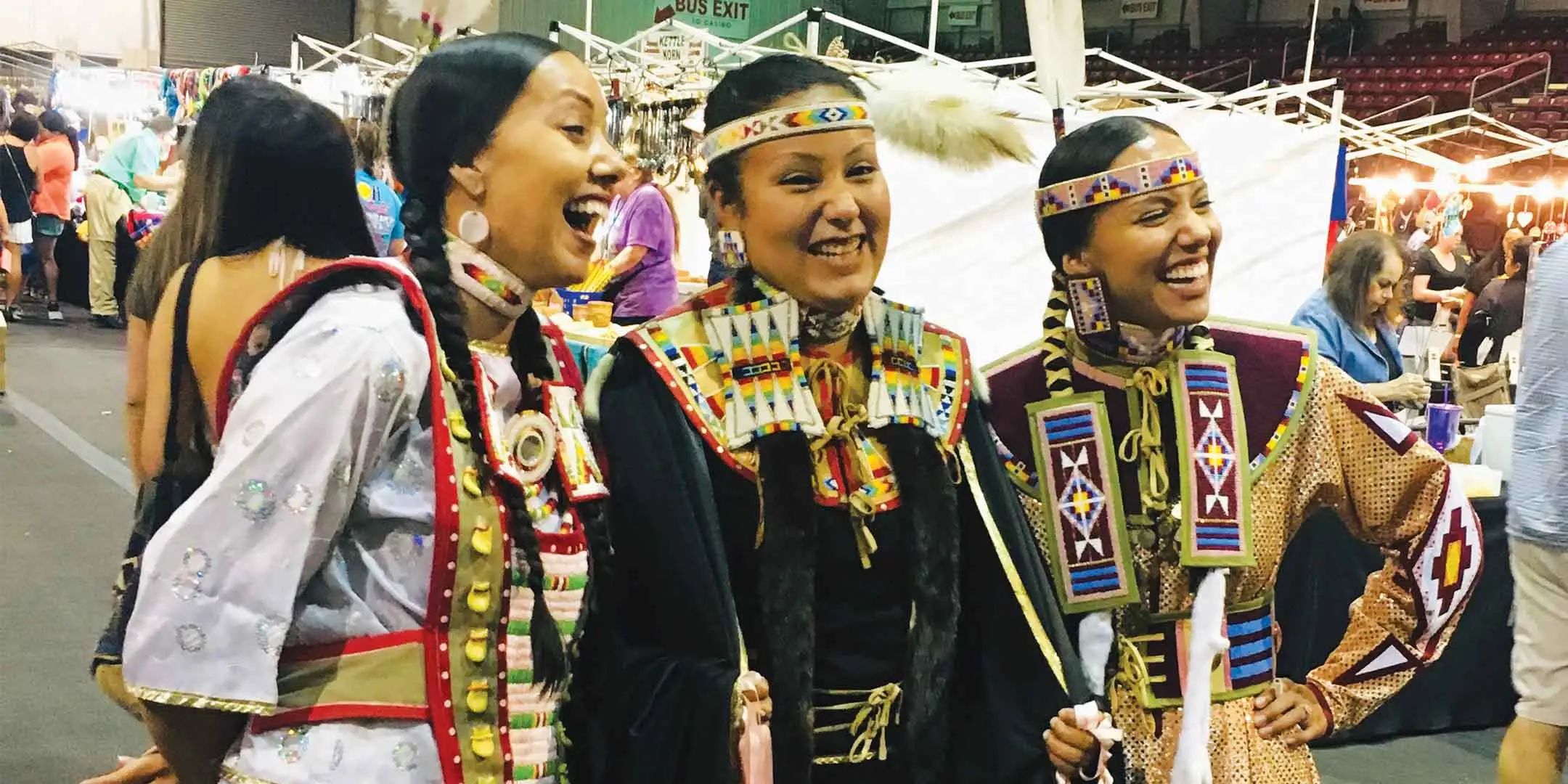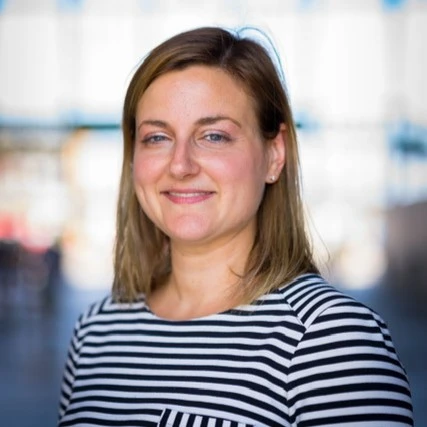Two Sisters’ Journey of Healing with Conscious Discipline
Wynnona Toeina and Katy Isennock honor their culture by acknowledging their people, homeland, and life-givers. Their mother is Rosebud Sioux. Both sisters have developed a deep passion and a personal stake in reaching diverse and tribal communities with the trauma-responsive and transformative power of Conscious Discipline. In this interview, we ask them to share parts of their story and how Conscious Discipline has been instrumental in their own healing.
First, tell us about growing up.
Wynonna: I was the youngest sibling of a blended family. Sharing my mother with my two sisters and brother and on my father’s side, I had my other older brother, and later in life a stepmother, and more siblings. I primarily stayed with my mom during my childhood since my father was away for many military deployments. During that time, my mom struggled with severe alcoholism, was a victim of domestic violence, and we experienced various periods of homelessness. As my mom battled all those struggles, I always wanted to stay as close as I could to her—even in all the darker and scariest times—as a comfort and to protect her the best I could.
As bad as all of those things sound for a child to experience, my mom did have a very pure and strong love for all of us. In my child’s brain, I always thought it was a balance: all the bad things were really tough, but her love and care were just as strong.
In my teen years, I moved to Washington state with my father and stepmother to join their family for a fresh start. As hard as it was to leave my mom, that change of environment was everything I needed. I was immersed into indigenous culture, living within the Puyallup Tribal community, attending an all-Native American School, observing my stepmom as a Tribal Social Worker within the CPS department and then moving on to serve the community as a daycare teacher for the Tribal Childcare center.
Katy: We grew up in a split home. Nona and I shared the same Mom but different Dads. Our mom became an alcoholic in our youth and into our adulthood, causing a lot of trauma, neglect, and mental issues for us growing up. Our mom ended up passing away from the disease and our time just always seemed to be cut short with her. We had some really healthy outlets for dealing with our pain, as well as some unhealthy outlets. We were never given the tools to fully cope with the trauma we dealt with.
Describe a pivotal moment in your journey when you realized you wanted to make a substantial change in your life, and that a substantial change was possible.
Wynonna: The childcare center I started working at, like in most other tribal communities, had a large population of children in the middle of crisis or recovering from recent trauma. Caring for the babies and toddlers who were going through similar experiences I had pushed me to provide the most intentional love and connection I possibly could. Being a new mom as well, I was hoping to provide a completely different childhood than I experienced.
It tends to be a common hope for most people with trauma to make a pivotal shift, but we were never given the guidance on how to start with the prevention part in the childhood years, only the ways of intervention after the fact. Seeing prevention as a missing link, I knew that was a tangible goal I could hang on to throughout this journey. If I could inspire a few people to be more intentional more often, we could maybe see the change.
I attempted to slow myself down to see the children that looked at me with “that look” —the time in between the thought of an unsafe choice and the ready-set-go-off —and I was able to witness the shift. It was just a try, but it was working. At that point, I wanted to learn more, try more, and tell anyone who would listen to try it with me. Just slowing down, breathing, and being present: that’s all it took for these children I was trying to reach for months.
Katy: I always carried with me the thought that I never wanted my kids to go through what I went through as a kid. I took care of my mom during her end stage of the disease, and it fueled my motivation to live a better life than she did. I lived with the trauma of her alcoholism as well as taking care of her in the end, and I never fully knew how to deal with it.
When Wynonna introduced me to Conscious Discipline, and I experienced my first week, I knew then that Conscious Discipline could make the substantial change complete.
Tell us how you were introduced to Conscious Discipline. Did you see yourself in it? What drew you to it?
Wynonna: I knew I wanted to make an impact and provide some sort of safety for the children, but I didn’t know how yet. A few months into my first year as a teacher Annette Chastain introduced our center to Conscious Discipline and my first thoughts were, “Why does this make so much sense but seems so different from what we’re used to?” I knew that children needed play, I knew they needed to be physically safe, and it was our job to teach them important developmental things; but that’s what we were doing, and our children were still hurting. When we were taught about intentional connection and practicing regulation to slow down, I realized we were all trying to quickly save all these children, fix them up, make them better. We had to shift our focus to slow down and truly see them for who they are, keep their experiences in mind, and build them up from the skills they share.
Annette provided long term support for our center for about three years, and I picked her brain about everything I thought “felt funny” about; practicing the structures, the language, and other things. She recommended I look into the Managing Emotional Mayhem book which really broke down how to look at ourselves as adults first. Diving into that book gave me the biggest ah-ha moment ever: “I have a lot of work to do for myself first, so much work. Then I can be there for all these people I want to help.”
Katy: Wynonna introduced me to Conscious Discipline. I honestly made the leap in trying it out because I got a scholarship, and I wanted to support my sister and see her. The first day of Conscious Discipline Institute I was uneasy, but I immediately became hooked. My first impression of Conscious Discipline was like, “Wow, this is exactly what I didn’t know I needed!”
Is there one of the Seven Powers for Conscious Adults that has significant meaning to you?
Wynonna: Learning more about our culture and original teachings, all the Powers for the adults are something similar to the Lakota Virtues. The Powers are there for us to practice throughout life. Each Lakota Virtue is not something you just master in one session of teaching; it comes from the lessons that each day brings. That really helped me to understand that trying to implement Conscious Discipline is truly a journey.
Two Powers that really keep me moving forward on this journey are the Power of Love, which goes with the Skill of Positive Intent, and the Power of Acceptance which goes with the Skill of Empathy. I’m learning to dive deep into the traumas I’ve experienced and how those connect to the hurt of my mom, grandma, and ancestors of past generations. This highlights why the Power of Love and Acceptance are so crucial to my path with Conscious Discipline.
Katy: The Power of Acceptance has significant meaning to me. I tend to worry a lot. To see the moment as it is impacts me a lot. This Power helps me to remember to respond to what life has to offer.
Looking back, have you ended up where you thought you would?
Wynonna: Almost every day I say aloud, “How am I even an adult?!” Then I remember that I’m a mom, an auntie, still a little sister, a Safekeeper, a wife, and now I’m a Certified Instructor of Conscious Discipline. I absolutely never thought that I would be doing any of this work, let alone guiding others along the way. If anyone knows me, I’m a big kid just trying to make sure it looks like I’m adulting the way I should be. I love the learning during this journey that gives me the opportunity to plant the seeds of healing along the way.
Katy: No, I thought I was doing fine in dealing with my past, but my introduction to Conscious Discipline made me realize there was more work to be done. I exceeded my expectations for healing for sure, but there is still more work to be done in my healing journey.
What is your message to others who have had similar experiences and backgrounds?
Wynonna: It’s been a long time of hurting and you are not alone. Our grandmas and grandpas have suffered a ton, and then much of that hurt was passed on to us. Now, our generation has different gifts to help us heal. Once you find that one thing that speaks to your heart, lean into that. Even if it seems like it takes too long or like you aren’t doing it right. It might not feel or look like you think it should, just keep trying. When you try, you are already a part of the change because you are giving healing a chance.
Katy: We have access to the tools and resources surrounding us to change and to stop the cycles of trauma we have experienced. We can implement these tools to change the future for ourselves and for others. We are not stuck or defined by our past. We can move forward and heal.




